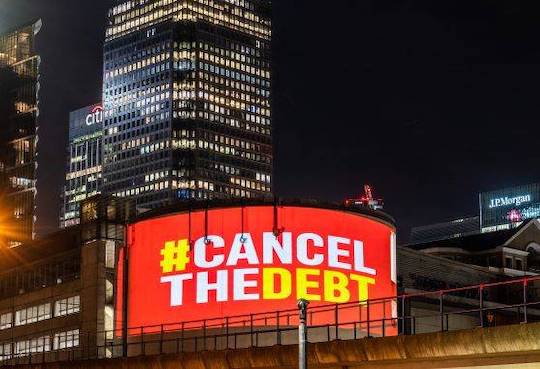
West must force private lenders to ease Africa’s crippling debt, say campaigners
Western governments should “compel” private lenders to ease loan repayments from low-income countries to tackle a debt crisis, according to campaigners.
Debt Justice, formerly the Jubilee Debt Campaign, said African governments owe three times more debt to western banks, asset managers and oil traders than they do to China, and are charged double the interest. China has been “mistakenly” blamed by western leaders for the failure to make progress on debt restructuring.
Tim Jones, head of policy at Debt Justice, said the UK and US were particularly important to reining in western lenders because most international private debt contracts are made under British or US law.
The organisation has calculated that 12% of African governments’ external debt is owed to Chinese lenders compared with 35% owed to western private lenders.
Half of the 22 African countries with the highest debt owe more than 30% to private lenders, while only six owe the same levels to China.
However, some of China’s loans, mostly focused on infrastructure, have been criticised for their harsh terms and conditions. In the case of a loan to upgrade Entebbe airport, the Ugandan government will have to give China the first 20 years of revenue to repay the debt.
Jones said western governments have failed to take on companies in their own countries who, unlike China, did not suspend debt repayments during the pandemic. “Western leaders blame China for debt crises in Africa, but this is a distraction. The truth is their own banks, asset managers and oil traders are far more responsible, but the G7 are letting them off the hook,” he said.
“There can be no effective debt solution without the involvement of private lenders. The UK and US should introduce legislation to compel private lenders to take part in debt relief.”
The pandemic pushed the foreign debt of low-income countries to the highest levels in 50 years, with almost two-thirds of countries suffering or at risk of debt distress, such as defaulting on a loan, according to the World Bank. Russia’s invasion of Ukraine has caused further concern by disrupting food and commodity prices.
In a report last week, the UN said that developing countries struggling with the global cost of living crisis are also lumbered with high debt, depleted foreign reserves and increased interest rates.
The G7 acknowledged the need for debt restructuring at a meeting last month. Leaders said they would “urge all relevant creditors, including non-Paris Club countries – such as China – and private creditors” to get more involved in debt restructuring. It also committed to “successfully” implement the G20 common framework for debt treatment, which was agreed in 2020 to offer relief to low-income countries with unsustainable debt.
The International Monetary Fund’s managing director, Kristalina Georgieva, warned of a crisis unless China and other G20 economies, whose finance ministers meet in Indonesia this week, move more quickly on debt relief.
Yungong Theophilus Jong, from the African Forum and Network on Debt and Development, said western governments should make private lenders cancel their debts. “Multilateral and private creditors remain the biggest creditors to African governments. Loans from China have increased Africa’s indebtedness, but by far less than western lenders. All lenders must participate in debt relief,” said Jong.
Original source: The Guradian
Image credit: CAFOD
